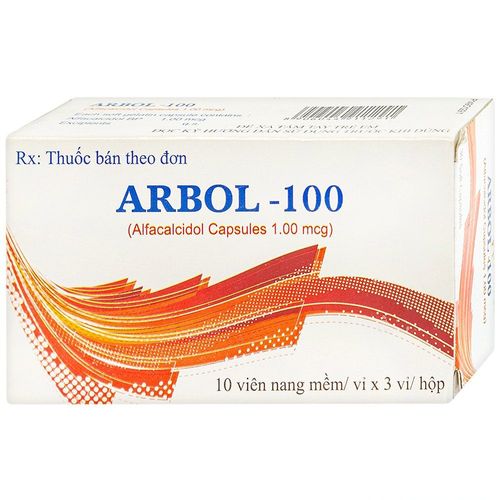This is an automatically translated article.
The article is professionally consulted by Master, Doctor Nguyen Thi Ngoc - General Internal Medicine - Endocrinology - Department of Examination & Internal Medicine - Vinmec Central Park International General Hospital. Doctor has more than 10 years of studying, researching and working in the field of endocrinology.The ALP activity test is a test that checks the level of the enzyme alkaline phosphatase in the blood, which helps doctors evaluate liver or bone function. In addition, the blood ALP activity index also shows malnutrition, rickets in children, kidney tumors or severe infections.
1. What is blood ALP activity?
Blood ALP (alkaline phosphatase) is an enzyme that exists in the blood and has the function of breaking down proteins in the body. ALPs exist in many different forms and depend on the organ where they are produced. Most ALP is produced in the liver, with the remainder produced in the bone marrow, intestines, and kidneys. In pregnant women, ALP is also synthesized in the placenta.
Blood ALP activity is an indicator of the alkaline phosphatase enzyme concentration in the blood, determined by specialized tests.

Ở người bình thường ALP chủ yếu được sinh ra từ gan
2. ALP . activity measurement test
The alkaline phosphatase test is an ordered test to determine the concentration of ALP enzyme in the blood. Thereby, the doctor can assess liver function and check to see if there is a problem with the patient's bones.
For the liver, the ALP activity test is part of the baseline liver function test. Accordingly, when the liver is damaged or has a liver-related disorder with symptoms such as jaundice, yellow eyes, abdominal pain, nausea and vomiting, the ALP test plays an important role in diagnosing the disease. . ALP activity measurement results are necessary information for doctors to diagnose diseases such as hepatitis, cirrhosis, cholecystitis, blocked bile ducts; For bone, the ALP test is particularly useful in detecting conditions associated with alkaline phosphatase levels in children such as rickets, osteomalacia, and Paget's disease. In addition, the alkaline phosphatase index in the blood also has an important meaning in assessing the body's vitamin D deficiency, the presence of tumors or abnormalities in the bone development process.
3. When should ALP measurement be performed?
ALP is used to screen and diagnose liver and bone diseases. Therefore, patients with suspicious symptoms at these 2 organs should be tested for ALP activity.
For the liver, the doctor will order the patient to perform the ALP test if he notices some symptoms related to the liver such as:
Jaundice; Stomachache; Vomiting. For bones, this test is indicated to diagnose such diseases as:
Rickets; Osteoporosis; Paget's disease ; Vitamin D deficiency status; Bone tumor; Abnormalities in bone growth.
4. How is the ALP blood test performed?
Before taking blood for ALP test, the patient does not need to fast or abstain from anything. However, patients should not eat too much before taking blood, because this has the potential to cause certain effects on the test results. In addition, patients also need to inform the doctor about the medications they are taking because some drugs can change the level of ALP in the blood.
When the test results are available, the doctor will notify the patient and indicate if any further tests are needed.

Bác sĩ sẽ thông báo kết quả xét nghiệm và tư vấn điều trị cho bệnh nhân
5. Clinical significance of the result value
5.1. Normal The normal values listed below are referred to as reference ranges for blood ALP activity. These ranges often vary by laboratory. Moreover, the doctor when evaluating the results will be based on both health status and many other factors. This means that, if a value falls outside the normal limits below, it can still be considered normal.Adults: Between 25 - 100 units per liter (U/L) or 0.43 - 1.70 microkatals per liter (mckat/L); Children: Under 350 U/L or under 5.95 mckat/L. 5.2. High values Elevated levels of ALP can be caused by liver problems, such as hepatitis, bile duct obstruction (jaundice), gallstones, cirrhosis, even liver cancer, or cancer that has spread In addition, high alkaline phosphatase levels can also be a sign of bone diseases, such as Paget's disease, osteomalacia, rickets in children, tumors. in the bones or the cancer has spread from another part of the body to the bone, or in some cases it is due to an overactive parathyroid gland (hyperparathyroidism). The recovery process after fracture is also the cause of increased blood ALP activity. In addition, patients with heart failure, heart attack, mononucleosis or kidney cancer are also subjects with elevated ALP levels. Severe infections that spread throughout the body (sepsis) also increase blood ALP activity. Pregnant women have high levels of ALP because the placenta is the organ that contributes to the production of ALP.
5.3. Low Value Low ALP activity can be caused by:
Problems that lead to malnutrition, such as celiac disease; The diet lacks nutrients; An inherited bone disease called hypophosphatasia. In addition to the ALP activity test, other tests may be ordered for the patient to perform additionally to determine if there is indeed a disease. Blood chemistry tests include many complicated steps, requires highly specialized skills and the support of modern machinery systems. Therefore, we should choose to perform blood biochemical tests at reputable hospitals. Vinmec International General Hospital is one of the hospitals that not only ensures professional quality with a team of leading medical doctors, system of modern equipment and technology, but also outstanding with comprehensive and professional medical examination, consultation and treatment services; civilized, polite, safe and sterile medical examination and treatment space. Customers when choosing to perform tests here can be completely assured of the accuracy of test results.
Please dial HOTLINE for more information or register for an appointment HERE. Download MyVinmec app to make appointments faster and to manage your bookings easily.













